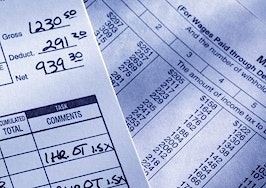- A recent Zillow report shows foreclosed home values gaining much faster compared to U.S. properties overall.
- Prior to the recession, homeownership rates among low-income households rose from 65 percent in the mid-90s to almost 70 percent in 2006.
- A staggering 46.7 percent of lower tier homes fell into foreclosure.
Not everyone was hit equally hard by the recession and housing bust.
A recent Zillow report shows low-end homes were more likely to be foreclosed during the housing crisis, but also that foreclosure home values are gaining at a much faster rate compared to U.S. properties overall.

Prior to the recession, homeownership rates among low-income households rose from 65 percent in the mid-90s to almost 70 percent in 2006. Because so many homeowners were forced to leave their investments, they lost the opportunity to partake in the promising recovery.
What did this mean for most low-income earners? Not only did they invest what little savings they had into a unprofitable venture, they also had to start over by possibly renting in an extremely hot market.
“Income inequality is an important topic in the U.S. right now, because the gap between the richest and poorest Americans is growing,” Zillow Chief Economist Dr. Svenja Gudell said in a statement.
The wealth gap grows as foreclosure values rise
In 2000, high-income households — defined by U.S. Census data — made an average of six times more than the lowest third of households. Last year, the top third of households made almost seven times more than the lowest third.
[Tweet “The top third of households make almost seven times more than the lowest third.”]

Out of all the financial crisis foreclosures, just 16.6 percent were in the most expensive tier. Meanwhile, a staggering 46.7 percent of lowest-tier homes fell into foreclosure.
Since the lowest point of the housing crash, average foreclosed home values jumped 39 percent by 2016, while all homes averaged a 22 percent value uptick.
Many foreclosure purchases stemmed from investors buying for rental conversion, the report says. This packed two-fold benefits: high value surges and the chance to cash in on the currently hot rental market. Over the past 10 years, single-family home rentals have risen from 13 to 19 percent.
Where did entry-level homeowners suffer the most?
According to Zillow, San Francisco’s foreclosures have gained an average of 82.7 percent in value from 2006 to 2016. Overall, home values in the City by the Bay have boosted 67 percent. Over half of San Francisco’s cheapest homes went into foreclosure during the recession.
In Baltimore, almost 52 percent of the least expensive homes were subject to foreclosure in the years following the housing crash. Baltimore’s foreclosure values boosted over 12 percent from 2006 to 2016, while all properties grew around 11 percent.
Almost half (49.3 percent) of Los Angeles’ entry-level homeowners faced foreclosure during the downturn. But since 2006, foreclosures values lifted 51.2 percent. In comparison, the average value boost for all homes in L.A. since the housing crisis is approximately 45 percent.
[Tweet “Almost half of LA’s entry-level homeowners faced foreclosure during the recession”]
In New York City and northern New Jersey, just over 46 percent homes in the lower third were foreclosed in the housing crash. Foreclosure values grew 14.6 percent from 2006 to 2016, compared to a 13.8 percent overall increase.
Miami home values boosted an impressive 64.6 percent since the recession, but they remain below the foreclosure value increases of nearly 80 percent. About 44 percent of the third-least-expensive homes in Miami faced foreclosure during the recession.
Foreclosed homes have benefited from a 24 percent value boost since the recession, which hit about 43 percent of homes in the least expensive tier. D.C. home values as a whole jumped just over 19 percent.
In Dallas-Fort Worth, just under 43 percent of bottom-tier homes were foreclosed, but foreclosure values rebounded by over 47 percent from 2006 to 2016. All home values in Dallas grew 43.5 percent in value during the recovery.
In the Windy City, around 42 percent of the lowest tier of homes faced foreclosure during the recession, but foreclosures gained an average 20 percent in value since. All homes in Chicago boosted 18.9 percent in value, on average, from 2006 to 2016.






